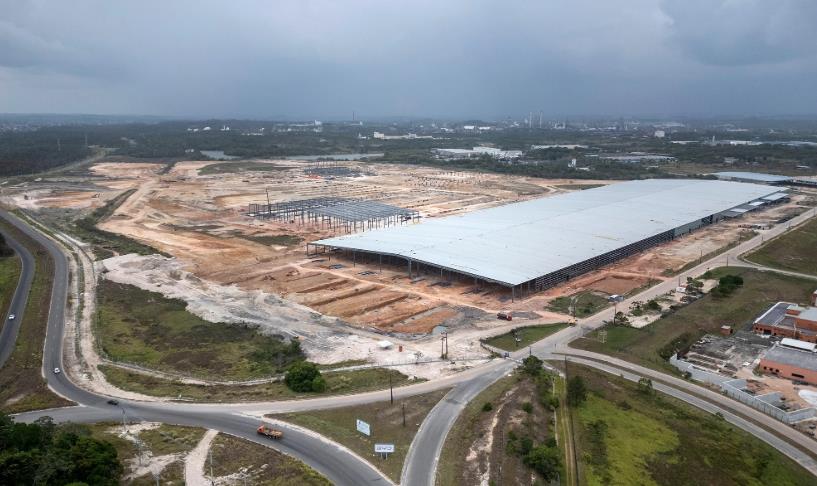
In the five months since U.S. tariffs soared, President Xi Jinping’s export engine has been unstoppable, with China’s trade surplus nearing a record $1.2 trillion.
Trump has eliminated funding for walking and bike paths, calling them “car-unfriendly.”
Over 5,000 rent-stabilized apartments in New York City are set to go up for auction.
With the demise of colleges, who owns the campuses?
Should we let public transportation die?

With access to the U.S. market restricted, Chinese manufacturers have shown they won’t back down: Purchases from India hit a record high in August, shipments to Africa are on track to set an annual record, and sales to Southeast Asia have already surpassed their pandemic peak.
This all-out trade war is causing panic overseas, as governments weigh the potential damage to their domestic industries against the risk of angering Beijing, the largest trading partner of more than half the world’s countries.
While only Mexico has publicly retaliated so far this year—imposing tariffs of up to 50% on Chinese products, including cars, auto parts, and steel—pressure is growing on other countries to act. Indian authorities have received 50 requests in recent weeks to investigate dumped goods from countries such as China and Vietnam, according to a person familiar with the matter, who spoke on condition of anonymity because the information is not public. This comes after a video of Chinese vendors hawking plans to export jeans and shirts to major cities for as little as 80 cents sparked an online outcry, prompting Indonesia’s trade minister to pledge to monitor the flood of dumped goods.
Despite the pain, opportunities for more meaningful action remain limited. Countries already engaged in tariff negotiations with the Trump administration appear reluctant to engage in a separate trade war with the world’s second-largest economy. This gives Beijing breathing room and shields it from the impact of U.S. tariffs, which economists had predicted would halve China’s annual growth rate.
“China’s slow response may be influenced by ongoing U.S. trade negotiations,” said Christopher Beddor, deputy director of China research at Gavekal Dragonomics. “Some countries may not want to be seen as contributing to the collapse of the global trading system. Some may be reluctant to impose tariffs on China in order to use them as concessions to the United States in their own trade negotiations.” Officials are treading cautiously to protect their economies from Beijing’s influence. South Africa’s trade minister has suggested avoiding punitive tariffs on Chinese auto exports—which have nearly doubled this year—and instead seeking more investment. Chile and Ecuador are quietly imposing targeted fees on low-cost imports after Chinese e-commerce giant Temu saw a 143% surge in monthly active users in Latin America since January. Despite threats of harsher retaliation, Brazil this summer offered BYD Co., Ltd., China’s largest electric vehicle manufacturer, a tariff-free window to expand local production.
Beijing is using diplomatic charm and economic threats to prevent countries from taking direct retaliatory action. Earlier this month, during a BRICS leaders’ conference call, China’s president called on BRICS nations to speak with a unified voice against protectionism. Meanwhile, Chinese Ministry of Commerce officials warned Mexico to “think twice” before taking action, making clear that such moves would provoke retaliation. Furthermore, Trump is pressuring NATO countries to impose tariffs of up to 100% on China in retaliation for its support for Russia. Chinese officials say that China’s trade with countries around the world is within reasonable limits and that Beijing does not seek to dominate the global market. “Where there is demand overseas, China will export,” Vice Finance Minister Liao Min said in July. Last month, the official People’s Daily responded to Western criticism of “dumping” on its social media accounts, stating that Chinese exporters would not sell products below cost. Shu Chang and David Qu of Bloomberg Economics say that if Trump does rally other countries to join forces against China, it would make it more difficult for China to address internal challenges such as the prolonged real estate crash and an aging population. “Beijing could immediately retaliate with reciprocal tariffs, but this risks alienating partners at a time when it desperately needs them,” they say. “Over time, this could also encourage companies to localize production in partner countries.”
While Chinese exporters are overcoming numerous difficulties, the trade surge has not made them richer, nor has it helped solve China’s domestic problems. Industrial profits fell 1.7% in the first seven months of this year as manufacturers, driven by Xi Jinping’s “anti-involutionary” campaign, sought to cut excess domestic capacity and slashed prices to increase overseas sales.





